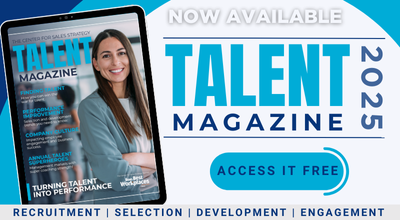
An interview can make or break a company’s relationship with a new hire.
A thorough interview process, using a validated talent assessment, looking for strengths, talents, and fit for the position, and examining fit to culture, can provide a strong jump off to a successful and lucrative career.
A desperation hire where a “warm body” is hired with no thought to their success can only lead to frustration, bad feelings on both sides, and repeating the process when the new hire quits. So, what are the secrets to a strong interviewing process and successful employer/employee relationship?
1. Job Analysis and Spec Sheet
Before you do anything else, think about your “must-haves." What are the strengths, talents, skills, and experience that are critical to this role?
Having those items firmly in mind will clarify the type of candidate you are searching for. Try to make your must-have list as specific as possible. Yes, a candidate with superstar strength in every area would be amazing, but since those candidates may be in short supply, what are the talents you just can’t live without?
If you're not sure which talents to prioritize, review your current team and think about the team member who you would clone if you could. Think about the talents that make them especially successful and put those on your list.
2. Validated Talent Assessment
Now that your talent priorities are clear, ask your candidates to take a validated talent assessment like the Sales Talent Assessment (STA) and compare the candidate's talents to your Spec Sheet.
How do their talents line up?
If possible, do this before you the first interview. Why? Because this helps you avoid both the glare of someone with an amazing personality, as well as any personal biases. If you look at talents first, and not experience, education, personal appearance, socioeconomic status, race, color, or creed, you will keep biases out of your initial selection process.
3. Pre-Hire Feedback Call
If available, sit down with a Certified Talent Analyst and review the candidate’s talent assessment. Come to the call equipped with your must-have list and also think about the role you are looking to fill and the culture the candidate would be joining.
Your Talent Analyst can point out possible culture and team connections and disconnects along with strengths that will help the candidate succeed and weaknesses that will trip them up.
4. Initial Interview
The initial interview tends to set the stage for the rest of the process, so create a plan on how you will put the candidate at ease.
Allow enough time to chat a bit and get to know them. Some people are extremely uncomfortable on the phone or on video, so think about some easy warm-up questions that will settle their nerves. Most people like to talk about themselves, so make it all about them!
Now listen for your must-have talents.
How?
If you're looking for someone who is confident and good at closing, listen for if and how they sell themselves. If you need an adaptive learner who will soak up information, listen for them wanting to learn your systems and showing interest in your products. And always allow time for questions. Your candidate is interviewing you while you interview them, so invite questions and be as transparent as possible.
5. Panel Interview
Sometimes, several heads really are better than one.
Having a variety of people, in a variety of jobs, sit down and interview a candidate can give some interesting insights. One interviewer may be particularly tuned in to the candidate’s positivity, while another picks up on an intensity that makes them uncomfortable. Listen to everyone’s impression so you have a well-rounded feel for this candidate.
And remember, choose a comfortable setting at a round table so it feels more like a friendly get-together and less like a tribunal.
6. Role Play Interviews
Think about how your new hire will spend most of their time. Cold Calling? Working with existing customers?
Whatever their focus is going to be, try doing some role-playing around that. Pretend to be the client or ask a coworker who they have not met yet to be the client and see how they handle a “normal” situation. Throw in some objections and conversation stoppers that are common to your business and community.
How do they handle those obstacles? Pose a few specific problems they are likely to encounter and see how they react. This will give you a feel for how they will collaborate with your clients and prospects.
Final Thought
You're interviewing for a new team member, someone who will influence your clients, your team, and your company culture.
The candidate is interviewing the person who will affect their work (and home) life for weeks, months, or hopefully years to come.
While how their strengths, talents, and personality fit on your team is vital, how well your coaching style fits them is vital as well. Put forth an effort to show off your management skills and impress them with how you care for your team.
And always end the interview process on a positive note, even if you decide not to hire. If they're not a future member of your team, they may be a future client, so make them love your company, even if they are not going to be part of it.




